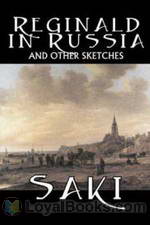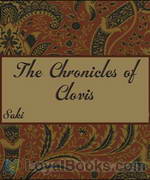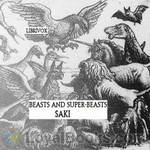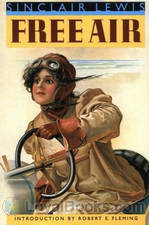|
Books Should Be Free Loyal Books Free Public Domain Audiobooks & eBook Downloads |
|
|
Books Should Be Free Loyal Books Free Public Domain Audiobooks & eBook Downloads |
|
Top Authors |
|---|
|
Book type:
Sort by:
|
By: Bill Nye (1850-1896) | |
|---|---|
 A Guest at the Ludlow and Other Stories
A Guest at the Ludlow and Other Stories
| |
By: Montague R. James (1862-1936) | |
|---|---|
 Ghost Stories of an Antiquary
Ghost Stories of an Antiquary
An English tourist in a small, rural town in the South of France discovers an ancient manuscript with a strange illustration on the last page. A young orphan is sent to live with his elderly cousin, a secretive man who is obsessed with immortality. A picture that tells stories that change according to who is viewing it. These and other delicious, goose bump evoking tales are part of Ghost Stories of an Antiquary by Montague R James. A master of his craft, MR James was an academic and administrator of King's College, Cambridge and later of Eton... | |
 The Five Jars
The Five Jars
The Five Jars is the only novel written by James, who is best known for his ghost stories. It is a peculiarly surreal fantasy apparently written for children. While he is out walking, the narrator is drawn to a remote pool, and finds a small box that has been hidden since Roman times. He gradually learns how to use its contents, fighting off a series of attempts to steal it, and becomes aware of a strange world hidden from our own. | |
By: Saki (1870-1916) | |
|---|---|
 Reginald
Reginald
Saki was the pen name of the British author Hector Hugh Munro (1870 – 1916). His witty, biting and occasionally odd short stories satirised Edwardian culture. Saki is considered a master of the short story and has been compared to O. Henry and Dorothy Parker as well as Noel Coward and Oscar Wilde (who clearly influenced Saki). His first collection of short stories, Reginald, was published by Methuen Press in 1904 though these stories first appeared in the ‘Westminster Gazette’. The stories... | |
 The Chronicles of Clovis
The Chronicles of Clovis
This is the third collection of short stories by Saki, following on from “Reginald” and “Reginald in Russia”. Although some of the stories have characters that do not appear elsewhere in the collection, many of them are loosely centred round the young Clovis Sangrail (effectively a reincarnation of Reginald). | |
 Beasts and Super-Beasts
Beasts and Super-Beasts
Saki (December 18, 1870 – November 14, 1916) was the pen name of British author Hector Hugh Munro. Saki’s world contrasts the effete conventions and hypocrisies of Edwardian England with the ruthless but straightforward life-and-death struggles of nature. Nature generally wins in the end. | |
 When William Came
When William Came
We have had many novels about alternate histories, often of the ‘What would have happened if Hitler had won the war’ type and this is another – except that this one is set in 1913 and the ‘William’ of the title is that old bogeyman ‘Kaiser Bill’. For some reason, at the height of Britain’s power, the fear of invasion was common at that time. (See ‘The Riddle of the Sands’, ‘The Battle of Dorking’, ‘Spies of the Kaiser’ or even ‘The War of the Worlds’)WARNING:- Contains mild anti-semitism and jingoism typical of the period | |
By: Patrick Henry (1736-1799) | |
|---|---|
 Give Me Liberty or Give Me Death
Give Me Liberty or Give Me Death
This speech was given March 23, 1775, at St. John’s Church in Richmond, Virginia, and is credited with having singlehandedly convinced the Virginia House of Burgesses to pass a resolution delivering the Virginia troops to the Revolutionary War. In attendance were Thomas Jefferson and George Washington. Reportedly, the crowd, upon hearing the speech, jumped up and shouted, “To Arms! To Arms!” | |
By: Robert W. Service (1874-1958) | |
|---|---|
 Ballads of a Bohemian
Ballads of a Bohemian
Ballads of a Bohemian is a collection of poems tied together by the narration of the “author” Stephen Poore. The poems speak of bohemian life in Paris before the war, his experiences during World War I and its aftermath. | |
 Selections from Ballads of a Cheechako
Selections from Ballads of a Cheechako
These twelve poems are from Ballads of a Cheechako which was Robert W. Service’s third book of Yukon poems, published in 1909. The word Cheechako, from Chinook Jargon, originated in the United States (Alaska) and Canada (Yukon) and was imported into local English during the Yukon gold rush that began in 1896. Cheechako, is a non derogatory word meaning “newcomer” or “tenderfoot.” The derivation looks something like this: chee new cha come ko home. | |
 Ottawa Folk Festival Robert Service Collection
Ottawa Folk Festival Robert Service Collection
The Spell of the Yukon by Robert Service with patrons, musicians and organizers. Robert Service is an iconic Canadian poet. | |
By: Theodor Storm (1817-1888) | |
|---|---|
 Immensee
Immensee
| |
By: Susanna Moodie (1803-1885) | |
|---|---|
 Life in the Clearings
Life in the Clearings
If you've read Margaret Atwood's Alias Grace, the historical fiction novel that describes a gruesome double murder in Canada in 1843, you would be interested to know the sources that were used by Atwood during her research. Life in the Clearings by Susanna Moodie was one such reference book in which the author, Susanna Moodie recounts her meeting with the infamous murderess Grace Marks, a young house help who was convicted to life imprisonment for her role in the slaying of her employers. Susanna Moodie was an Englishwoman born in Suffolk... | |
 Roughing It in the Bush
Roughing It in the Bush
'Roughing It In the Bush' is Susanna Moodie's account of how she coped with the harshness of life in the woods of Upper Canada, as an Englishwoman homesteading abroad. Her narrative was constructed partly as a response to the glowing falsehoods European land-agents were circulating about life in the New World. Her chronicle is frank and humorous, and was a popular sensation at the time of its publication in 1852. | |
 Life in the Backwoods
Life in the Backwoods
| |
 Flora Lyndsay or, Passages in an Eventful Life Vol. II.
Flora Lyndsay or, Passages in an Eventful Life Vol. II.
| |
 The Little Quaker or, the Triumph of Virtue. A Tale for the Instruction of Youth
The Little Quaker or, the Triumph of Virtue. A Tale for the Instruction of Youth
| |
 The Monctons: A Novel, Volume I
The Monctons: A Novel, Volume I
| |
 Mark Hurdlestone Or, The Two Brothers
Mark Hurdlestone Or, The Two Brothers
| |
 George Leatrim
George Leatrim
| |
 Flora Lyndsay or, Passages in an Eventful Life
Flora Lyndsay or, Passages in an Eventful Life
| |
By: Sinclair Lewis (1885-1951) | |
|---|---|
 Main Street
Main Street
A social satire, Main Street became a best-seller soon after its publication, fascinating readers with its biting humor and realistic portrayal of small-town communities. Published in 1920, the novel follows Carol Milford as she moves to a conventional small town, where she encounters its conceited residents characterized by their ignorance, hypocrisy, and smugness, while simultaneously being the target of their careless ridicule. Furthermore, the novel efficiently exemplifies the dividing line between the sophisticated urban setting and the conventionally governed small-town, as it tackles issues of embracing differences, social class, disillusionment, feminism, and community... | |
 Free Air
Free Air
This road trip novel is set in the early twentieth century and follows the experiences of an aristocratic New Englander and her father as they travel by automobile from Minneapolis to Seattle. She is wooed and won by a noble but simple commoner she meets along the way. Lewis is at his usual wryly humorous self, poking fun at the upper class and treating the common people only slightly better. | |
 The Trail of the Hawk
The Trail of the Hawk
| |
 The Innocents, A Story for Lovers
The Innocents, A Story for Lovers
“Mr. and Mrs. Seth Appleby were almost old. They called each other 'Father' and 'Mother.' But frequently they were guilty of holding hands, or of cuddling together in corners, and Father was a person of stubborn youthfulness.” It is only by subterfuge that Seth is able every year to obtain his two week's vacation from the shoe store, and they are off to the farm-house of Uncle Joe Tubbs on Cape Cod. But this year the vacation turns into a full blown scheme to open a country tea room somewhere on Cape Cod, and their life suddenly begins to change. . . . (Introduction by Don W. Jenkins) | |
 Our Mr. Wrenn, the Romantic Adventures of a Gentle Man
Our Mr. Wrenn, the Romantic Adventures of a Gentle Man
"At thirty-four Mr. Wrenn was the sales-entry clerk of the Souvenir Company. He was always bending over bills and columns of figures at a desk behind the stock-room. He was a meek little bachelor--a person of inconspicuous blue ready-made suits, and a small unsuccessful mustache." Mr. Wrenn, however has a rich inner life embellished by his own imagination. When he comes into a modest inheritance, he feels he ought to learn to get out and wander a bit, and then his education begins. He finds life more "interesting", perhaps than he had "imagined". . . (Introduction by Don Jenkins) | |
 The Job
The Job
‘The Job’ is an early work by American novelist Sinclair Lewis. It is considered an early declaration of the rights of working women. The focus is on the main character, Una Golden, who desires to establish herself in a legitimate occupation while balancing the eventual need for marriage. The story takes place in the early 1900-1920’s and takes Una from a small Pennsylvania town to New York. Forced to work due to family illness, Una shows a talent for the traditional male bastion of commercial real estate and, while valued by her company, she struggles to achieve the same status of her male coworkers... | |
By: Charles Kingsley (1819-1875) | |
|---|---|
 The Water-Babies
The Water-Babies
First published in 1863, The Water Babies by Rev Charles Kingsley became a Victorian children's classic along with J.M. Barrie's Peter Pan and Lewis Caroll's Alice books. It is an endearing and entertaining novel that can equally be enjoyed by adult readers as well. However, it fell out of favor in later years since it contained many ideas that are considered politically incorrect and offensive today from a humanitarian perspective. The Water Babies, A Fairy Tale for a Land Baby to give the book its complete title tells the story of Tom, a young orphan chimney-sweep in Victorian London... | |
 The Heroes, or Greek Fairy Tales for my Children
The Heroes, or Greek Fairy Tales for my Children
The Heroes, or Greek Fairy Tales for my Children by Charles Kingsley is a collection of three Greek mythology stories: Perseus, The Argonauts, and Theseus. The author had a great fondness for Greek fairy tales and believed the adventures of the characters would inspire children to achieve higher goals with integrity. | |
 Hypatia
Hypatia
Charles Kingsley (June 12 1819 - January 23 1875) was an English divine, university professor, historian, and novelist, particularly associated with the West Country and north-east Hampshire. As a novelist, his chief power lay in his descriptive faculties, which are evident in this novel as he pictures the Egyptian desert and the ancient city Alexandria. Hypatia, 1st published in 1853, is set in 5th Century A.D. Egypt. It centers upon a young orphan monk from a desert monastery who feels called to continue his religious life in the city... | |
 Madam How and Lady Why
Madam How and Lady Why
Did you ever wish you knew how to explain natural phenomena such as earthquakes and volcanoes to your children? Search no more, this book has all the answers (at least all the ones that were known in 1869) and gives them in a pedagogical way. Listed on the Ambleside homeschooling list. | |
 The Saint's Tragedy
The Saint's Tragedy
| |